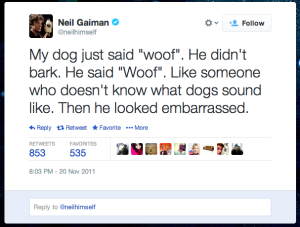Elizabeth Spann Craig's Blog, page 138
March 13, 2014
A Free Tool for Writers—Vook’s Author Control
By Elizabeth S. Craig, @elizabethscraig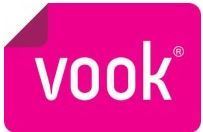
I mentioned briefly in last Sunday’s Twitterific that I was a beta tester for a new tool for writers. Vook’s Author Control launched over a week ago. I wasn’t paid for my testing, but asked to give feedback and a fair review or endorsement if I liked the service.
I’ve blogged before that I’ve been frustrated with some of the business/financial aspects of publishing. For one, it’s time-consuming to track of income. That meant that I wasn’t doing a wonderful job keeping track of income, which meant that I had an unfortunate tax bill when I went to my CPA in February. I’ve made some changes since then. For one, I have a separate bank account that writing-related income is directly deposited to, so that it doesn’t mix in with our general household funds (a recommendation the CPA had made last year but that I was slow to follow up on).
But I still faced the slow tracking of income—in particular of my self-publishing, which is producing nearly 70% of my income. It’s nice to keep tabs on our income for a variety of different reasons: matching sales against payments, tracking trends/popularity of books or series, seeing how various books are performing at different retailers, experimenting with price points, and knowing what to put away for taxes. Oh—and it’s also handy to know what we’ll be paid 60 days later by these retailers.
But the process looked like this (sure this is familiar to most of you): login and open the financial tabs for Nook, Amazon’s KDP, Apple iConnect, Smashwords, and CreateSpace (ACX for me, also). Find units sold for the month-to-date. And…do a bit of mathematics. For KDP, I’m multiplying the price of each book times the units sold. Sometimes I also lowered or raised prices of the books in the middle of the month, so I had to take those differences into account, too. No, the math isn’t hard, yes, I used a calculator. But it’s time-consuming. And I made errors when multiplying. It was a pain, actually. Because I really just wanted the bottom line—how much income am I generating?
So when I was asked to try beta software from Vook—AuthorControl—as an early user, I was happy to give it a go. I was to test it and offer suggestions for improvement, report any issues, and give my thoughts.
Basically, you sign up through the Vook site. You give your login credentials for the various retailers that you work with (the site states that Vook uses industry best practices to encrypt data). Vook verifies your account. Then you have a single dashboard that reports sales for whatever period of time you want to focus on…and the results are in dollars and cents. We can see gross sales and net sales in addition to unit sales.
You can create graphs (pie chart, line graph, bar graph) to help understand the stats more clearly. And you can export your sales report to a .csv.
You can focus on a particular title or time period.
The first ten books are free to track…tracking more requires an upgrade to subscription plans.
Vook also offers a variety of other (paid) services for writers, including cover design, editing, and distribution, but writers are not required to purchase those services to use the free sales tracking.
I do feel a sense of relief that a lot of the unwieldiness of the process has been taken care of and that sales tracking is more streamlined (since sales tracking still isn’t my most favorite thing in the world to do…but important as a publisher and a small business owner). And it makes me feel more professional and on top of it.
For more information, Publishers Weekly also wrote about the service, here.
When you sign up, you’ll get tracking from the day you sign up, moving forward (so no historical data prior to signing up).
That’s my tip of the day… a helpful resource for writers. And I’m happy to answer any questions about it if I can. If I can’t, I can try to loop in some folks from Vook to help me out.
How much sales tracking do you do? How do you use sales tracking?
The post A Free Tool for Writers—Vook’s Author Control appeared first on Elizabeth Spann Craig.
March 11, 2014
Writing Longhand
By Elizabeth S. Craig, @elizabethscraig
One thing I’ve found with my writing is that my process tends to change or adapt through the years. It’s important to find what works, what helps us be more productive, and stick with that. Clearly, different approaches will work for different writers.
A big change, that I recently thought about when reading writer Victoria Grefer’s post, The Pros and Cons of Writing Fiction on Paper First, has been switching over from writing longhand to writing on a laptop.
When I first started writing, I’d write everything in a notebook and then later transcribe it into a computer. I tended to feel a lot more creative when I wrote in a notebook—and writing with a toddler around…a toddler who loved punching on computer keyboards…meant that it was easier to write around her.
Then I started getting contracts from publishers. I found that my old method wasn’t working as well for me. I felt as if I were doing twice the work by having to transcribe my longhand onto the computer.
Some things I enjoy about writing longhand:
It’s a lot more portable. It’s easier to cart the notebook around. I don’t feel quite as conspicuous in public when I’m writing in a notebook as opposed to a laptop.
Sometimes it’s the best way to get unstuck or make major progress on a book that I’ve been writing too slowly. Not sure if this is because I’m writing longhand, or because I’m frequently in a different location when I’m writing longhand.
Some book elements seem to come easier to me when writing longhand. I seem to write setting and description better that way.
You don’t get nearly as distracted by social media when you’re writing in a notebook.
I do light editing when I transcribe my longhand into my Word document. I’m not sure if this qualifies as a pro or a con, since editing is something I don’t ordinarily do until after I’m done with a first draft. Although the light editing I’m doing is fairly automatic and I don’t believe I’m overthinking it.
Sometimes I brainstorm better on paper than I do on the computer.
A few words of caution:
Unless you’re a really fast typist or not on any sort of a deadline, I try to cap my longhand writing to maybe six pages. Otherwise, I’ll have to not only spend time transcribing my work the next day, but I’ll also have to hit my word count for that day.
Don’t put off transcribing. Don’t wait until you have a full notebook and then transcribe it. And make sure you put your notebook in a special location. I’ve lost notebooks before and it’s terrifying.
Make sure you can read your own handwriting. :( This tends to be a problem of mine. Apparently, I should have had a career in medicine instead…
As I mentioned above, I try not to get sucked into editing until my first draft is over. If this is something that’s also a problem of yours (getting diverted by editing), then you might want to keep in mind when you’re transcribing your work that you’ll fix it later.
Do you ever write in longhand? How does that approach work for you?
Image: MorgueFile: Jessica Gale
The post Writing Longhand appeared first on Elizabeth Spann Craig.
March 9, 2014
The Neil Gaiman Guide to Social Media
Imagine millions of people tuning in to hear what you have to say.
Not because they have to, but because they want to. They’re ready to support your next project and spread your latest news. And you can reach them all with just a few keystrokes and a click.
This isn’t a fantasy. It’s Neil Gaiman’s reality.
Gaiman lives in social media nirvana. He has attention for what he does and admirers for how he does it. When someone is compelled to highlight his past tweets because he’s taking a social media sabbatical, you know he’s doing something right.
So is he an outlier? Or are there lessons from his success that can be applied to your own situation?
Let’s take a closer look.
The exception that proves the rule
At first glance, Gaiman often breaks from social media convention.
He talks a lot about himself, constantly promotes his work, and generates what seems to be an overwhelming amount of content. You’ve probably heard that the best way to engage a following is to put the needs of your audience above your own. Gaiman seems to do whatever he wants.
Appearances can be deceiving.
Gaiman isn’t attempting to connect with strangers. He’s delighting fans. These are the people who know his books and are curious about him, so when he tweets about an upcoming event or answers fan mail at the end of blog posts, he is fulfilling the desires of his audience.
That’s the difference between what Gaiman is doing and an unknown author just starting on social media. When you don’t have anyone listening, or anyone that cares, focusing on yourself isn’t going to get you anywhere. More updates on your blog or Twitter or Facebook will do little to change your anonymity.
So what should you do instead?
Remember what social media actually is
It’s just a tool. It won’t get you a readership by itself.
Do you want more followers on social media? Focus on your stories. Write more and better. Create wonderful fiction for someone that would find that fiction wonderful.
This is obvious. And yet, ask yourself:
Are you expending more effort on social media than writing?
Are you constantly reading the same social media strategies over and over?
Are you regretting the amount of time you spent on social media?
If you’ve answered “yes” to any of these questions, then perhaps you need to reassess what you’re doing.
Neil Gaiman seems to be witty, engaging, and a decent person. But do you honestly think that he has almost two million Twitter followers just because of that? Gaiman built a huge audience because of his storytelling, not because of his personality or social media tactics.
***
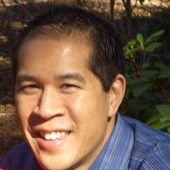
Don’t let the tool become the trap. The best way to become known for your writing is to write something worth reading. That won’t change even when social media does.
Jason Kong helps fiction writers with their online marketing. Subscribe to get free insights here.
The post The Neil Gaiman Guide to Social Media appeared first on Elizabeth Spann Craig.
March 8, 2014
Twitterific Writing Links
by Elizabeth S. Craig, @elizabethscraig

Twitterific links are fed into the Writer’s Knowledge Base search engine(developed by writer and software engineer Mike Fleming) which has over 23,000 free articles on writing related topics. It’s the search engine for writers.
I also wanted to mention a cool new tool for writers (free) that I helped to test drive before its release. Vook released a new ebook tracking tool that tracks sales across all major retail channels. Publishers Weekly wrote about it here . I liked that I didn’t have to pull up my KDP page, my Smashwords page, my iBookstore page, and my Nook page to get a sense of my sales for the last month, because it compiled them all…what’s more, it puts results in dollars and cents, which is helpful for the math-challenged like me. You can track up to ten titles for free.
When to Add a Scene Break: http://ow.ly/u9lGj @janice_hardy
Warning Signs that Your Character Is Acting Out of Character: http://ow.ly/u9luH @KMWeiland
What to do when you get an offer while your MS is still with other agents: http://ow.ly/u9mJX
The Fantasy Language Problem: http://ow.ly/u9mjO @DjangoWexler
Understanding the storytelling arc: http://ow.ly/u9luZ @nownovel
So-Called Screenwriting ‘Rules’: Protagonist and Shifting Goals: http://ow.ly/u9luP @gointothestory
The Artist’s Alphabet Guide to Writing About Your Art : http://ow.ly/u9lGz @ArtMktgMentor
How 1 Writer’s Day Job Helped Me Get Published: http://ow.ly/u9lYN @MKAlexander1
Intense and Marketable Novels? A Simple How-to: http://ow.ly/u9mjC @Jenslattery
Keep Writing—Sometimes You Have to Go Through the Junk to Get to the Gems: http://ow.ly/u9lZ9 @EdieMelson
7 Free Tools to Organize and Prioritize Your Writing Life http://ow.ly/u9lZ5 @thewritelife
3 Experiments You Shouldn’t Try: http://ow.ly/u9mjs @mythcreants
Checklist and Rulebook Casefile: Morally Ascending in Alien: http://ow.ly/u9mK0 @cockeyedcaravan
On Diversity Within Diversity: http://ow.ly/u9lG0 @ava_jae
Copywriting: A 3-Step Formula for Captivating Your Audience With a Few Opening Lines: http://ow.ly/u9lv0
Identifying our writing style: http://ow.ly/u9lFM @rfwriters
4 Benefits Of Using The KDP Select Program For Kindle Book Promotions: http://ow.ly/ucutV @bloggless
How Can We Identify a Good Editor? http://ow.ly/ucutw @jamigold
London Author Fair and the role agents might play in self-pub: http://ow.ly/uegoC @Porter_Anderson @HellieOgden @andrewlownie
A Most Audible Alarm: ACX Chops Royalties: http://ow.ly/uiSx8 @ChuckWendig @Porter_Anderson @brianoleary
Gentrification as an element in crime fiction: http://ow.ly/ug2HV @mkinberg
Crime fiction–when police disregard citizens’ reports of crimes: http://ow.ly/ul7pz @mkinberg
Is There a Place for the Slow Writer in the Digital Age? http://ow.ly/ucuQb @annerallen
Oyster Books: Disrupting the disruptor: http://ow.ly/uctx8 @OliveSoftware @jwikert
Publish or self-publish? Advice for the 2014 writer: http://ow.ly/ucuQ9 @Roz_Morris
10 Dialogue Tips To Make Your Novel Shine: http://ow.ly/uctwo @sdwriter
The Rules for Writing for Struggling Readers: http://ow.ly/ucuEG
The Rites of Feedback: http://ow.ly/ucuu1 @StinaLL
Screenwriting – The Unconventional Writing Approach (Good or Bad?) – ScriptShadow http://ow.ly/um88C
10 Things That Every Brand New Creator of Science Fiction Should Know: http://ow.ly/um7Zm @io9
What should a writer assume from lack of response to queries? http://ow.ly/um7Nz @Janet_Reid
Discoverability, or The Two Hundred Copy Pocket: http://ow.ly/um7ph @Dario_Ciriello
10 Reasons Indie Authors Will Capture 50% of the Ebook Market by 2020: http://ow.ly/um7gg @markcoker
10 Reasons 1 Editor Rejects Short Stories: http://ow.ly/um78R @manzanitafire
Learning to be a Novelist: http://ow.ly/um6fu @megwolfewrites
Sentence Length: Is Shorter Always Better? http://ow.ly/u8KIM
A writer in residence wish list: http://ow.ly/u8KEp @EliseVanCise
15 Quick and Dirty Writing Tips: http://ow.ly/u8KIO @WritingForward
The Year-Long Book Launch: http://ow.ly/u8KsY @DanBlank @writerunboxed
The 5 Reasons Writers Write: http://ow.ly/u8KDt @AnneBorrowdale
Is Your Subconscious Mind Setting You Up for Failure? http://ow.ly/u8KIE @kristenlambtx
Becoming a Self-Published Author: http://ow.ly/u8Ktg @janice_hardy
How Pre-Made Book Covers Inspire Writing: http://ow.ly/u8KEi @write_practice
What It Is To Write : http://ow.ly/u8KSf @raulfelix275 @thoughtcatalog
What every writer needs to succeed: http://ow.ly/u8Kt6 @hoodedu @salon
How to Keep Your Writing Warm When You Can’t Write | Holly Robinson: http://ow.ly/u8KVb
The 6 Motives of Creativity: Mary Gaitskill on Why Writers Write: http://ow.ly/u8KDl @brainpicker
How to Write a Blog Post Every Single Day: http://ow.ly/u8Ktc @gsosk
1 writer would rather be a successful writer than a successful female writer: http://ow.ly/u8Kt9 @McDougallSophia @NewStatesman
Writer’s block? 5 easy jumpstarts to get you flowing: http://ow.ly/u8KOx
Amazon Hack: Get Your Book into the Hands of an International Audience: http://ow.ly/u8L3s @bookgal
Differences Between Commercial and Literary Fiction: http://ow.ly/u3Mip @AnnieNeugebauer
7 Activities to Keep Kids Busy While You Write: http://ow.ly/u3L9Q
5 Successful Authors On How They Overcame Creative Blocks To Write Their 1st Book: http://ow.ly/u3OAh @fastcompany
Pitching to the new Gatekeepers: http://ow.ly/u3KOe
Tech Tips for Writers: Google +: http://ow.ly/u3Lb0
Harriet the Spy: The most unlikable hero in children’s lit : http://ow.ly/u3NY4 @magiciansbook @salon
So-Called Screenwriting ‘Rules’: Flashbacks: http://ow.ly/u3Mhh @gointothestory
“Writing a book by committee is a great idea in every way!” said everyone but the writer. http://ow.ly/u3NY3 @rchazzchute
5 Reasons You Need a Mentor: http://ow.ly/u3MhJ @Xtal_Rose
Gadgets and Spreadsheets and Apps for Writers: http://ow.ly/u3KMK @RMFWriters
You have something special to say: Write with abandon: http://ow.ly/u3KMc @onewildword
3 Reasons Dialog is Important, 3 Reasons It’s Not: http://ow.ly/u3La2 @victoriamixon
Special Needs in Strange Worlds –When Abilities Becomes Disabling: http://ow.ly/u3Mi4 @sfsignal
5 habits of productive novelists: http://ow.ly/u3MS9 @chrisrobley
Finding Voice in Middle Grade: http://ow.ly/u3Nvu @MLConklin
A Thousand Words: Writing From Photographs: http://ow.ly/u3Ofw @cncep @newyorker
Amazon, Goodreads, and the Death of Criticism: http://ow.ly/u3LaC @keithr34
50 Shades of Grey Matter: Creative Publicity for Authors: http://ow.ly/u1V4W @pubsmartcon
Status as Character Calling Card: http://ow.ly/u1W24 @mooderino
3 Keys of Self-Publishing: http://ow.ly/u1YcA @shelfmagazine
The Problem With Book Returns & How to Solve it: http://ow.ly/u1V4m @111publishing
Readers on what constitutes too much description: http://ow.ly/u1WKH @DianneDHarman
Miss You, SASE: On Postal Submissions: http://ow.ly/u1V5b @nickripatrazone @The_Millions
Creating a Rock Star Publishing Team for Your Book: http://ow.ly/u1Zb5 @miralsattar @BiblioCrunch
6 Ways to Survive Rewrite Hell: http://ow.ly/u1Z3a @shleyBdavis
The Only Thing Writers Can Control: http://ow.ly/u1W1h @DanaLeipold
Where to turn when it’s time to research: http://ow.ly/u1Z9W @erin_bowman
9 Tips on Pinterest for Writers: http://ow.ly/u1YCZ @LPOBryan
How to Use Subtitles for Targeted Book Marketing: http://ow.ly/u1W1A @BookMarketer
When is writing a good book a bad thing? http://ow.ly/u1X3n @stephenwoodfin
The biggest mistake in writing for children: http://ow.ly/u1YTo
Writing romance: imagery and characterization: can the two ever meet outside of English class? http://ow.ly/u1X3k @JadeLeeAuthor
10 Apps to Help You Stay Focused on Your Writing: http://ow.ly/u1WNQ @CaballoFrances
Launching a Book–By Throwing a Party: http://ow.ly/ufU6j @DuffyBrownCozy
Writing is a Selfish Task But It Needs to Be: http://ow.ly/u1W23 @nutschell
The Emotionally Healthy Publishing Career: http://ow.ly/u1V4y @SaraMegibow @janice_hardy
Why 1 Writer is No Longer Cautiously Optimistic about the Future of Publishing: http://ow.ly/u1a4x @passivevoiceblg
5 steps to self-publishing success: http://ow.ly/u1aBy @Bookbaby
Where Did Our love (of craft) Go? http://ow.ly/u1b8g @Jordanrosenfeld
How to deal with writer’s block http://ow.ly/u1bQh @tannerc
Show vs Tell: Talking About The Narrator: http://ow.ly/u1cgk @woodwardkaren
How To Earn More From Your Writing: Maximize Your Rights: http://ow.ly/u1cfx @writetodone
How To Cultivate A Creative Thinking Habit: http://ow.ly/u1aaF @fastcompany
Reaching Readers with Kindle Countdown: http://ow.ly/udtuh @podixon
5 Reasons Conferences are Good for Writers: http://ow.ly/u1b8M @Andilit
Authors and social media: Too many tweets? http://ow.ly/u1cfO @TheEconomist
Common Ground in the Debate of Self v. Traditional Publishing: http://ow.ly/u1b9h @passivevoiceblg
A Quick 5-Point Checklist for Writing a Scene: http://ow.ly/u1cJT @jodyhedlund
‘Self-publishing changed my life, but my publisher grew my sales’ http://ow.ly/u1a3R @thefuturebook @kerrywk
Building Your Writing Space: http://ow.ly/u1aBa @TheSprintShack
Rules for Writing Fiction: http://ow.ly/u1cfp @cwrg65
Why Grammar, Spelling, and Usage Matter http://ow.ly/u1bvo @epbure
Writing Romantic Tension: http://ow.ly/u1aC4 @bethvogt
Balancing Writing & Life—The World Rewards Finishers Not Perfection: http://ow.ly/tYrMq @kristenlambtx
A Guide to Finding One’s Voice as a Writer: http://ow.ly/tYqWM @elephantjournal
In a Digital World, What Does Out of Print Mean? http://ow.ly/tYrMt @pubperspectives
Treating the contagonist favorably: http://ow.ly/tYm55 @glencstrathy
10 Famous Film Scripts and What You Can Learn from Them: http://ow.ly/tYsyI @flavorwire
15 Ways to Boost Your Confidence in Your Writing: http://ow.ly/tYsqb @EzineArticles
Is My Book a Novel or a Novella | Indie Authors and Books: http://ow.ly/tYsxy
Does what you paid for a book affect how you’d rate it? http://ow.ly/tYrND @dearauthor
Do Writers Need Agents? http://ow.ly/tYsxP @carolJhedges
What The Sleep Habits of Famous Writers Reveal About Their Productivity: http://ow.ly/tYsxw @lvanderkam
What Makes A Good Story Portfolio/Story Artist? http://ow.ly/tYqWf
10 Essential Self-Editing Tips: http://ow.ly/tYqW3 @CSLakin @writetodone
How to Be Loved for the Work You Love to Do: http://ow.ly/tYrN2 @danasitar
How 1 Agent Reads Slush: 3 Lessons for Writers: http://ow.ly/tYqWJ @carlywatters
7 Reasons You Are Better Off Self-Publishing: http://ow.ly/tYrNo @111publishing
Literary Friendships: http://ow.ly/tYm5B @womenwriters @emilymidorikawa @emmacsweeney
The Truth About Twitter Contests: http://ow.ly/tYm5m @KristineAsselin
Is the Amazon Ebook Market Model Broken? http://ow.ly/tYsyl @claudenougat
The Other Side of Self-Publishing: The Rise of a New Service Industry: http://ow.ly/tVC8l @RichMeyer1964
Where to put the entrepreneur in publishing? http://ow.ly/tVGcb @Tom_Chalmers @thefuturebook
Reaching readers with Kindle Countdown: http://ow.ly/ua3pi @podixon
Bella Swan and the Art of the Audience Surrogate: http://ow.ly/tVBrX @adearinthewoods
So-Called Screenwriting ‘Rules’: Parentheticals: http://ow.ly/tVC93 @gointothestory
How to Become a Freelance Writer in 900 Simple Steps: http://ow.ly/tVCy0 @writerscramp1
The Secret To Succeeding As A Writer: Having A Criterion For Success http://ow.ly/tVFsq @woodwardkaren
The Truth About Twitter Contests: http://ow.ly/tVGl4 @KristineAsselin
4 Questions to Ask About Each Draft http://ow.ly/tVCyn @LizColeyBooks
Questions for Literary Agent David Gernert: http://ow.ly/tVFsO @jakonrath
The post Twitterific Writing Links appeared first on Elizabeth Spann Craig.
March 6, 2014
Backing Up Our Work
by Elizabeth S. Craig, @elizabethscraig
And now for a very brief public service announcement. Please back up your work.
What way is easiest for you? There are so many options.
The best way is to have a digital copy backed up—on a USB/thumb drive, as an email attachment in an email sent to yourself. In Dropbox. On Google Drive or Skydrive (these are free options for cloud backup). On a server in your home. Or just print the thing if you don’t mind retyping it if you lose a digital version.
My children laugh at me because I wander through rooms as they do homework and ask, “Have you backed up? Are you backing up? Have you hit save?” They’ll say, “Yes, Mom.” I’ll think they’re just placating me (sometimes they are) and will say, “Let me see how you’ve saved the file.” If I don’t see a file name for the document, there’s trouble on the horizon and Mom is mad. That’s another way we lose work and the train of thought—if our computer freezes and needs a reboot. And then I ask them to email me their most important files for school.
My son, a high school junior, asked me a few days ago how often I hit save as I’m writing. Every couple of sentences. No joke. He asked how often I back up and I answered, “Every writing session.”
There are programs that will do this automatically for you, so you don’t have to think about it. But since I’ve trained myself to do it automatically, I don’t need the programs.
I’ve lost work before and it’s not fun. In fact, despite all my efforts, I lost a research-related document last week that I’d spent a day working on. Not sure how it happened. It seemed that maybe I accidentally hit select-all and delete…and then saved the empty file.
We work hard. We have ideas and dialogue and scenes that are hard to replicate. Hit save. Then back up to an outside device or cloud or piece of paper.
How good are you about backing up your documents? What’s your favorite way to save your work?
Image: MorgueFile: Alvimann
The post Backing Up Our Work appeared first on Elizabeth Spann Craig.
March 4, 2014
Launching a Book–By Throwing a Party
by Duffy Brown, @DuffyBrownCozy
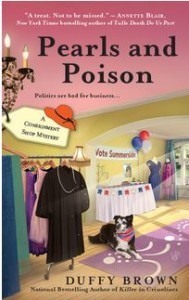 All my life I thought launch was what those really smart rocket science people do to get something into space and never in all those years did I expect to be involved. Yet here I am dong a launch of my very own. Not that I’m putting a rocket in space…though right now that seems like a snap…but I’m launching a book.
All my life I thought launch was what those really smart rocket science people do to get something into space and never in all those years did I expect to be involved. Yet here I am dong a launch of my very own. Not that I’m putting a rocket in space…though right now that seems like a snap…but I’m launching a book.
What do you mean launch, I asked. The book comes out on a specific day, booksellers, B&N and Amazon put it up for sale, end of story. Done.
To launch my Consignment Shop Mystery series I though it would be fun to do something different. I’ll have a mystery party at my house, I decided! I have the house, I like parties. A match made in heaven.
Sixty is a nice number and I can just buy one of those inter-active mystery party things online. Piece of cake.
You can see where this is going, can’t you. Murphy’s Law on steroids.
First off there are no mystery parties online for sixty that has everyone involved all the time. That means I have to write the mystery. And if people are coming to my house I have to feed them and drink them.
Thirty years ago I decided I wanted kids and my husband went along with it. That gave me four waiters and barkeeps for my party. It took me a week to write the party with characters and clues.
A few things I discovered along the way. The most important is the more alcohol, the better the party and my ability to write the mystery. The second is that your friends are there for fun more than finding out who-done-it. And did I mention the alcohol?
The theme was Roaring 20’s and Duffy’s Speakeasy. Lots of decorations online to buy and an easy theme to dress in costume for and did I mention the alcohol? I divided the guests into families…Manicotti family, Ravioli family…you get the picture. I think I did this at night when hungry. Working in families made everyone pull their info and come up with the killer.
I’ve had three parties now and each time it gets better. If you’re a mystery author it’s a great gig…do it. If you’re a mystery reader get invited to one. If I do party four I’ll let you know. I’d love to have one at the Cincinnati conservatory with a Clue theme. You know, Miss Scarlett in the conservatory with the candlestick. That’s my dream. I’ll let you know when the invites go out.
So…what is the best party you’ve been to? What makes a party special? Got any suggestions if we go to the Conservatory? I’ll give away two Pearls and Poison totes from the answers.
 Duffy Brown loves anything with a mystery. While others girls dreamed of dating Brad Pitt, Duffy longed to take Sherlock Holmes to the prom. She has two cats, Spooky and Dr. Watson, her license plate is Sherlock and she conjures up who-done-it stories of her very own for Berkley Prime Crime. Duffy’s national bestselling Consignment Shop Mystery series is set in Savannah and the Cyclepath Mysteries are set on Mackinac Island. Duffy writes romance as Dianne Castell and is a USA Today bestselling author.
Duffy Brown loves anything with a mystery. While others girls dreamed of dating Brad Pitt, Duffy longed to take Sherlock Holmes to the prom. She has two cats, Spooky and Dr. Watson, her license plate is Sherlock and she conjures up who-done-it stories of her very own for Berkley Prime Crime. Duffy’s national bestselling Consignment Shop Mystery series is set in Savannah and the Cyclepath Mysteries are set on Mackinac Island. Duffy writes romance as Dianne Castell and is a USA Today bestselling author.
http://www.amazon.com/Pearls-Poison-Consignment-Shop-Mystery/dp/0425252485
The post Launching a Book–By Throwing a Party appeared first on Elizabeth Spann Craig.
March 2, 2014
Amazon Author Central
By Elizabeth S. Craig, @elizabethscraig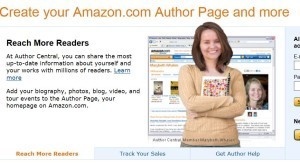
Amazon Author Central is an easy, quick way to establish a presence on the world’s biggest book retailer.
I can link to my Author Central page as an email tagline, on my website, or on promo material to help direct readers to all (well, most) of my books on different formats. Because I also write under a pen name (Riley Adams), those books don’t show up on my Elizabeth Spann Craig page. But in my bio, I mention them and link to my website, which shows all three series.
I link to my Twitter feed and my blog feed to keep the page looking active. I have a bio and recent picture up there. And I love the feature that Amazon provides: right on the right-hand column of the Author Central page is a section called “Stay Up to Date” which offers to email readers whenever I have a new release.
And…that’s really it. It’s sort of like LinkedIn—I just set it up and forget about it and let it do its work.
What I hadn’t done, until reading “Amazon Hack: Get Your Book into the Hands of an International Audience” by Penny Sansevieri at Author Marketing Experts, is set up Author Central on various Amazon International sites. The article details the process, with screenshots.
Fortunately, a lot of the time-consuming part was skipped because your regular Amazon user name and password can be used for all these stores in all these countries and Amazon can connect you fairly automatically with your books.
I did have problems with France when claiming my books—they only saw one book from one series…and from Penguin, so they have to confirm with Penguin that I’m me.
I did also have problems signing into Amazon Japan. I don’t know why…I may have to set up a separate user name and password there, but that seems odd. I’m planning on trying again later.
If you use the Chrome browser, it will automatically ask you if you want to translate the page into English (a box pops up at the top of the page for each link). This is a nice time-saver.
USA: https://authorcentral.amazon.com/gp/landing
UK: https://authorcentral.amazon.co.uk/gp/landing
Germany: https://authorcentral.amazon.de/gp/landing
France: https://authorcentral.amazon.fr/gp/landing
Japan: https://authorcentral.amazon.co.jp/gp/landing
Let me just go right ahead and put in the link for Google Translate for my non-quad/quint-lingual writing friends. :) I took five years of French but that was unfortunately upward of 20 years ago and I had trouble putting together a simple bio in the language. It’s better if you have a fluent friend who can translate your bio for you, for obvious reasons. I’ll be working on mine more, later. One trick I found helpful was taking the translated bio and putting it back into Google translate and translating it back to English. I found some very strange wording/sentence structure when I did, which caused me to reword my bio to make it clearer.
I will go ahead and save you the frustration of looking: yes, there are many other countries with Amazon stores, among them Canada, India, China, Australia, and Italy. (You’ll find all of Amazon’s international stores listed here.) No, there are no Author Central pages set up for those countries—I spent way too much time on my Sunday confirming this. You can get to the country’s store, you can sell your books there, but you won’t find an Author Central page to upload your info to (if I’m wrong and you do know of a link…please let us know.) From what I understand, Amazon is working to create Author Central on all these sites, but it doesn’t seem to be a tremendous priority for them.
In addition to working as a promo tool, Amazon also offers sales tracking from the Author Central page: you can track your weekly sales and even see sales by geographical location.
I’m clearly not making full use of Author Central, but I have a presence there. You can also add video clips (your book trailers or an interview where you’re talking about your books, for instance). You can add your events there (these could even be online events like Twitter contests or chats or Google + hangouts or new releases). You can also add discussion threads for all of your books on your page.
I’m thinking that whatever I can do to increase visibility on Amazon sites has got to be helpful.
Are you on Amazon Author Central? Internationally as well as in the US?
The post Amazon Author Central appeared first on Elizabeth Spann Craig.
March 1, 2014
Twitterific Writing Links
by Elizabeth S. Craig, @elizabethscraig
 Twitterific links are fed into the Writer’s Knowledge Base search engine(developed by writer and software engineer Mike Fleming) which has over 23,000 free articles on writing related topics. It’s the search engine for writers.
Twitterific links are fed into the Writer’s Knowledge Base search engine(developed by writer and software engineer Mike Fleming) which has over 23,000 free articles on writing related topics. It’s the search engine for writers.
Freelancing–the Right Way to Write for a Living: http://ow.ly/tU6Xv @_RobbieBlair_
How To Bulk Up Your TBR List: http://ow.ly/tU6q5 @stephauteri @ploughshares
Blood-Red Pencil: I Want to Write a Book…Someday http://ow.ly/tU6C2
Choosing stronger nouns: http://ow.ly/tU6g6 @AJordon
Achieving Your Writing Resolutions: http://ow.ly/tU6q0 @krisneri @RMFWriters
10 Simple Productivity Tricks To Manage Overloaded Information http://ow.ly/tU6pR @angee
Know Your Goals: Artist-Author or Professional-Author? http://ow.ly/tU6gb @jamigold
Guest Blogging Is Dead—Long Live Guest Blogging: – Heidi Cohen http://ow.ly/tU6xR @HeidiCohen
Tips for choosing a writing teacher or mentor: http://ow.ly/tU6fZ @caroldespeaux
Why 1 writer chose to write anonymously: http://ow.ly/tU6Cd @NikkiGemmell
Persuasive Writing – Emotional vs Intellectual Words: http://ow.ly/tU6MG @amandaonwriting
11 Steps for Successful Query Submission to Publications: http://ow.ly/tU6MJ @ninaamir
What Are Those ‘Long Hyphens’ All About? http://ow.ly/tU6C1 @CSLakin
Think Like a Publisher 2014: Production and Scheduling | http://ow.ly/tU6xL @deanwesleysmith
Why We Write http://ow.ly/tU6y0 @TrueFactBarFact @writerunboxed
Story patterns/structure of different crime fiction subgenres: http://ow.ly/u5XtE @mkinberg
Authors: New Blog Topic Generator: http://ow.ly/tU6fT @wherewriterswin
Stay Safe Online While You Build Your Platform: http://ow.ly/tU6C4 @EdieMelson
Hugh Howey and the Indie Author Revolt http://ow.ly/tRqnG @markcoker
Why self-published authors should know and understand grammar: http://ow.ly/tRqnI @CSLakin
11 Types of Magazine Articles to Write : http://ow.ly/tRoNn
Publicizing a book? What to Expect… and When: http://ow.ly/tRoMA @pubsmartcon
Creative Entrepreneur: Cultivating Raving Fans And Lessons From The Music Industry: http://ow.ly/tRpn9 @thecreativepenn
Getting Serious With Serialization: http://ow.ly/tRqzC @BookWorksNYC @roncallari
The Cheater’s Way to a Viral Video: http://ow.ly/tRoNI @amandaluedeke
Archetypes vs Stereotypes: http://ow.ly/tRpmB @fantasyfaction
5 Voice Tools That Will Help You Write Better — Without a Keyboard: http://ow.ly/tRplY @thewritelife
‘My Writing Stinks! (Or does it?)’ http://ow.ly/tRqoY @kristaphillips
Writing video games: can narrative be as important as gameplay? http://ow.ly/tRqVB @gshowitt
5 Ways to Make an Author Love You http://ow.ly/tRqoK @YAMisfits
7 Quick Ways To Write Sentences That Sizzle: http://ow.ly/tRpkP @jodierennered
10 Tips for Debut Authors: http://ow.ly/tRp2Y @hannahbeckerman
New Publishing Clashes with Old: http://ow.ly/tRplv @passivevoiceblg @JanetKGrant
Using Motivation To Shape Your Plot: http://ow.ly/tRqVm @BookLaurie
Vook Acquires BookIR, Means Realistic Book Sales Data: http://ow.ly/u1aSA @vooktv @Goodereader
6 Screenwriting Pitching Lessons from the Sharks: http://ow.ly/tRjWh @scriptmag @jeannevb
Self-Publishers: Hold Yourselves to a Higher Standard: http://ow.ly/tRkw3 @gjjmcmahon
Book Reviews that Help: http://ow.ly/tRiIo @EdieMelson
On Author Earnings and Author Yearnings: http://ow.ly/u1keh @jamesscottbell
Great literary husbands: The men who supported genius: http://ow.ly/tRjVd @magiciansbook
The Introvert’s Guide to Book Marketing: http://ow.ly/tRiKZ @timgrahl
Vladimir Nabokov: Writing, Reading, and 3 Qualities a Great Storyteller Must Have: http://ow.ly/tRkcp @brainpicker
Creating an Indie Author-Bookstore Symbiosis: http://ow.ly/tRiJq @smclaugh4
Why Traditional Publishers Should Surrender To Self Publishing: http://ow.ly/tRjEG @eoinpurcell
The Best Place to Sell Books is Not a Book Store: http://ow.ly/tRkvG @CoachJudy
Publishing – We’re All On the Same Side: http://ow.ly/tRjVh @ramez
15 More Online Retailers to Sell Your Book : http://ow.ly/tRjE4 @111publishing
What tools do entrepreneurial authors need? Live chat at #EtherIssue with @Porter_Anderson going on now.
Author Earnings: The B&N Report: http://ow.ly/u1lGx @HughHowey @AuthorEarnings
More News on Authors Behaving Badly, Using Well-Known Authors’ Names as Pseudonyms http://ow.ly/u1bSy @lorcadamon
Hugh Howey: When the People of Publishing Are Set Free: http://ow.ly/u1lvu @HughHowey @Porter_Anderson
Serial Novels Get Second Life With Smartphones, Tablets: http://ow.ly/tRhgT @nbcnews @kwagstaff
How to Find Creative Inspiration: http://ow.ly/tRjDu @screencrafting
Mystery Writers–Who (or What) is Your Femme or Homme Fatale”? http://ow.ly/u19Ic”
7 Effective Ways To Quickly Improve Your Writing: http://ow.ly/tRkcS @_allisonwrites
Literary prizes make books less popular, study finds: http://ow.ly/tRkdr @guardianbooks
When Flaws Go Too Far: Avoiding Unlikeable Characters: http://ow.ly/tRiJS @angelaackerman @writersdigest
The Long and Short of Writing the Middle: http://ow.ly/tPyG1 @mooderino
Narrative Setting: How To Build A World: http://ow.ly/tPzZH @woodwardkaren
12 Surefire Signs You Really Are a Writer http://ow.ly/tPB0O @ediemelson
It Takes The Time It Takes: http://ow.ly/tPzYM @ChuckWendig
5 Ways To Write A Complex Female Character: http://ow.ly/tPB1m
10 Common Mistakes from a Literary Agency Point of View: http://ow.ly/tPA0h @jim_devitt
Indirect/Characterization: http://ow.ly/tPz3r
A character survey: http://ow.ly/tPANd
Bringing Tools of the Trade to Self-Publishing: http://ow.ly/tYeAA @mattcavnar @fakebaldur @Porter_Anderson
How to Write a Query Letter for Magazines and Other Publications http://ow.ly/tPzZe @ninaamir
Hiring the Right Editor: http://ow.ly/tPyFY @miralsattar @pubsmartcon
10 Reasons Our Hero Needs Flaws http://ow.ly/tPzp4 @angelaackerman
Why You Shouldn’t Format Your Word Docs: http://ow.ly/tPzpa @JWManus
Amtrak To Offer Writers’ Residency Program: http://ow.ly/tZXcP @huffpost
Studying author earnings surveys: http://ow.ly/tNtyi @jamigold
Becoming an Olympic Quality Writer: http://ow.ly/tNClR @jodyhedlund
How Point of View Affects Show Don’t Tell: http://ow.ly/tNzHM @janice_hardy
Before the Query: Preparing to Submit Fiction to Agents and Editors: http://ow.ly/tNCHm @WritingForward
How authors become mega-brands: http://ow.ly/tNBS2 @bbc_culture
9 Tips To Crush WriterÂ’s Block: http://ow.ly/tNBnH @ADDerWORLD
13 Reasons You May Not Be A Successful Writer… Yet: http://ow.ly/tNBsW @wherewriterswin
How to Show Instead of Tell: http://ow.ly/tNBOj @KeytopServices
Is Binge Reading the New Binge Watching? http://ow.ly/tNBYw @DennisAbrams2 @pubperspectives
Make a Post-It Note Countdown to Stick to Your Habit Plan: http://ow.ly/tNzEu
4 Points To Remember When Writing A Self-Help Book: http://ow.ly/tNBIb @writersrelief
The importance of preparing readers for shocking story events: http://ow.ly/tVuQc @JacksBlackPen
Getting to the Heart of Character Development: http://ow.ly/tNtxm
Blogging for Authors – Why 1 Writer Has Been Doing It All Wrong: http://ow.ly/tNBe6 @Windswarlock
Self-Editing–Common Errors and Easy Fixes: http://ow.ly/tVrwc @SikesAaron
5 Big Problems Facing Science Fiction Writers and How to Solve Them: http://ow.ly/tNC60 @Windswarlock
A Writer’s Voice Is All About Choice: http://ow.ly/tNzPx @BookGeekConfess
Are You Missing Opportunities to Make Your Writing Stronger? http://ow.ly/tNCwF @janice_hardy
Building a Book: Second Draft: http://ow.ly/tNCF1 @ShaunEHorton
7 Creative Lessons from Hemingway: http://ow.ly/tNz4E @mbrianorme
Pros and Cons of writing a Trilogy: http://ow.ly/tNtwW
How Minor Characters Help You Discover Theme: http://ow.ly/tNziL @KMWeiland
How to make a living as a writer: http://ow.ly/tNyWL @jaltucher
3 Secrets To Power Charge Your Writing Motivation: http://ow.ly/tNtwF @jameslrubart
How to Craft a Love Scene: http://ow.ly/tNyQW @RConstantine14
13 Browser-Based Tools For Writers: http://ow.ly/tNz0G @makeuseof
How to Become a Successful Travel Writer: http://ow.ly/tNyST @_allisonwrites
5 Strange Truths Authors Know About Productivity: http://ow.ly/tNzfI @vgrefer
5 Apps for Copy Editing: http://ow.ly/tU6WY @galleycat
Tips For Jingle Writing: http://ow.ly/tU7ll @JamesDesh23
15 attributes of an effective query letter: http://ow.ly/tU79O @bookbaby
Balancing Character Agency: http://ow.ly/tU7r2 @mythcreants
Writing for the right reasons: http://ow.ly/tU7qO @jeffgoins
Your Audience Is Unorganized: http://ow.ly/tU7qt @DanBlank @writerunboxed
Top 10 Tips for Surviving Relationship with a Writer http://ow.ly/tU7le @MargoWKelly
Are You Too Glued To Your Writing Genre? http://ow.ly/tU7qo @cateartios
Reviewing 101: http://ow.ly/tU7lh @BooksAndPals
5 Simple Tips for the Writer’s Website: http://ow.ly/tU78j @losapala
Self-Publishing Isn’t Just for Authors: Video Game Developers Do It, Too: http://ow.ly/tU7ff @vqnerdballs @BookWorksNYC
Escapism vs. Reality Check: On Creating Honest Fiction: http://ow.ly/tU7Jk @RyanCaseyBooks
Writers Block Isn’t Real: Except When It Is: http://ow.ly/tU7Jz @FebruaryGrace
5 Ways to Use Dramatic Irony in Your Writing: http://ow.ly/tU7qU @JulieEshbaugh
28 Simple Steps to Write, Raise Funds and Publish a ChildrenÂ’s Book: http://ow.ly/tU7IY @TDMBAUncles @writersdigest
Great Character: The Geek (“Sixteen Candles”): http://ow.ly/tU7Gx @gointothestory
10 Benefits Of Rejection: http://ow.ly/tVC8A @Author_JSWayne
How to write a query letter in 12 easy steps: http://ow.ly/tVFXG @amandaonwriting
Google Tips and Tricks: http://ow.ly/tVBs5 @melaniepinola
How Not to Develop Characters 101: http://ow.ly/tVBsu @beccaquibbles @diymfa
How to Finish Your Writing Projects (Even When You Don’t Feel Like It): http://ow.ly/tVC9l @joebunting
Don’t Get Screwed: The Contract Provisions Every Creative Needs to Know: http://ow.ly/tVCxd @jainspotting
Content Edits: http://ow.ly/tVBsS @writedivas @larin20
How To Create An Inspirational Workspace For Writing: http://ow.ly/tVFs7 @writetodone
Questions for Literary Agent David Gernert: http://ow.ly/tVFsO @jakonrath
The post Twitterific Writing Links appeared first on Elizabeth Spann Craig.
February 27, 2014
Creating a Production Plan
By Elizabeth S. Craig, @elizabethscraig
I’ve come to the conclusion that production plans are important for any prolific writer, whether they’re self-published, traditionally published, or a hybrid writer.
I was lucky enough with the deadlines for the two traditionally published series that the drafting didn’t (usually) happen at the same time. Only once that I can remember did I have two books for two different series due at once. That was…not fun.
But adding a third series into the mix meant I had even more stuff to juggle. And with self-pub, you have to add other elements onto your calendar apart from the writing: contacting your team, approving a cover, going through the editing process with a freelancer, getting the book formatted, writing cover copy…it’s a lot.
A week ago, one of the members of my self-pub team contacted me to ask when she should put me on her calendar for editing this year. This made me stop and think. Production would certainly go a lot faster and smoother and launch deadlines would become firmer if I figured out my calendar for the year, got my team onboard with my calendar, and then simply followed the schedule I’d set.
I’ve heard other writers talk about their production schedules. Writer Dean Wesley Smith recently posted on the importance of production schedules in his post “Think Like a Publisher 2014: Production and Scheduling.” Writer J.A. Marlow even offers a free writing and publishing excel template.
I know how long it takes me to write a book (usually 3 months from start to edited finish). I (roughly) know how long it takes to go through editing (usually 3-4 days for me to respond to edits), cover design process and approval (3 days usually), formatting (a day maybe).
I knew I had two trad-published deadlines this year and that I wanted to write two self-published books (possible because one of the trad-published books was handed in on Jan. 1. so only requires editing) .
I decided to make a list, as a hybrid writer, of all the things I’m responsible for doing (writing related and production related and a smidge of promo). It looks like this:
Outline (required for trad-pub, now adopted for my self-pub)
Incorporate requested edits for both trad-pub and self-pub
Teaser chapters written, frequently before entire book is finished (trad. pub)
Write back cover copy/promo copy (self-pub)
Update website with launch dates, covers, cover copy, and sample chapters
Ensure I have enough ISBNs for all formats
Contact
See if I have time to pass manuscript by beta readers
ACX up for audition after book is available on Amazon.
Proof ACX
Update bio, list of works
Create and send release newsletters to subscribers
Order proofs for CreateSpace
Upload to Smashwords, Nook, Kindle, CreateSpace.
Note releases on Facebook
Update Goodreads. Consider Goodreads giveaway. Update my Amazon Author page.
Then I set up my calendar. The trick was to schedule the tasks, keep on schedule, think ahead, and see what steps can possibly even be combined. I’ve currently turned in one trad-pub manuscript, have just finished a self-pubbed book, have outlined the next Penguin book, and am working on an outline for the next self-pubbed book now. I’ve got a cover conference with my designer at the end of March…why not just get both self-pubbed books covered at once? After all, I’ll have a completed outline for that book by then…I could just go ahead and write the cover copy and have that checked off my list.
I’m hoping that putting all of these separate steps on my calendar will help me to just automatically take care of these tasks instead of wasting time trying to remember what I need to do next…or by having to wait for my publishing team members because I forgot to contact them.
Do you set deadlines for yourself? Does it help you stay on track?
Image: MorgueFile: dhester
The post Creating a Production Plan appeared first on Elizabeth Spann Craig.
February 25, 2014
Mystery Writers–Who (or What) is Your “Femme Fatale”?
by Joe Benevento
 Anyone familiar with mystery knows the “femme fatale,” a character who can prove literally lethal to the man she seduces away from clear thinking. Bridget O’Shaughnessy in Hammett’s The Maltese Falcon is an example, presenting herself as a “damsel in distress” in need of Sam Spade’s help and protection, but ending up his ultimate distraction and potential demise (see the character played by Jane Greer in the 1947 noir film, Out of the Past for another classic rendition of the type.) In spite of our familiarity with the function of a femme fatale, not all readers or writers of fiction realize how far-reaching the concept is, how flexible, and how ultimately crucial it can be to any plot involving the kind of thinking needed to unravel a complex crime.
Anyone familiar with mystery knows the “femme fatale,” a character who can prove literally lethal to the man she seduces away from clear thinking. Bridget O’Shaughnessy in Hammett’s The Maltese Falcon is an example, presenting herself as a “damsel in distress” in need of Sam Spade’s help and protection, but ending up his ultimate distraction and potential demise (see the character played by Jane Greer in the 1947 noir film, Out of the Past for another classic rendition of the type.) In spite of our familiarity with the function of a femme fatale, not all readers or writers of fiction realize how far-reaching the concept is, how flexible, and how ultimately crucial it can be to any plot involving the kind of thinking needed to unravel a complex crime.
Some detectives avoid the danger of a femme fatale by staying away from any relationship with any woman. The list of detectives who are mistrustful of entanglements with females is a long and illustrious one. I still am surprised at how many female readers (my fifteen year old daughter among them) are huge fans of Sherlock Holmes, since Holmes himself is no fan of women. In The Sign of Four, in response to Watson accusing Holmes of being “an automaton….inhuman” because of his disinclination to notice the charms of a woman who has come to them for aid, the detective notes: “It is of the first importance not to allow your judgment to be biased by personal qualities…. The emotional qualities are antagonistic to clear reasoning.” Much later in the novel he is blunter: “”Women are never to be entirely trusted, not the best of them.” Another very popular detective, Nero Wolfe, explains to his employee Archie Goodwin, why he prefers him over a spouse: “to have you with me …is always refreshing because it constantly reminds me how distressing it would be to have someone present- a wife, for instance- whom I could not dismiss at will.” (Fer-de-Lance). Even a married detective among the bunch, Nick Charles in Hammett’s The Thin Man is retired from detective work before he marries Nora and accidentally re-involved when he reluctantly gets thrown into a new murder investigation; crime solving and domestic life do not mix in classic detective fiction. Holmes and Wolfe simply avoid women, Sam Spade or Chandler’s Philip Marlowe get involved with femme fatales, but are wary enough not to be undone by them.
Of course this mistrust of women and particularly their sexuality can probably be traced all the way back to the Garden of Eden and the attempt to blame Eve for Adam’s own bad decision making. In fact, Umberto Eco in The Name of the Rose, codifies this tradition for all readers of mystery when he has the monk Ubertino explain to the young narrator why a woman falsely accused of witchcraft is still essentially guilty: “If you look at her because she is beautiful and are upset by her… if you look at her and feel desire, that alone makes her a witch.” Eco’s novel , set in medieval times, reveals the femme fatale as a by-product of men’s own misplaced carnal desires.
The idea of always making a woman the threat to a detective’s equilibrium has become not only tired but also distasteful to a large portion of the reading public, so mystery writers have made adjustments. Sue Grafton is one of the most popular writers of contemporary detective fiction. (She’s presently all the way up to W in her letter by letter mysteries featuring female detective Kelsey Milhone). It is far from coincidental that in her very first book, A Is for Alibi, her detective finds herself entangled with a suspect-become -lover, who essentially serves as her “homme fatal.”
While having a male equivalent is one way to freshen the trope, sexual distraction is not the only option, as a detective can be dissuaded from clear thinking and concentration by a variety of factors: say, his or her checkered past or an ongoing drinking problem. For example, Jim Chee in Tony Hillerman’s very successful novels set in Navajo territory not only is sometimes distracted by his various romances, but also by his devotion to Navajo culture, which more than once collides with his ability to concentrate on the case at hand. In A Thief of Time, for example, Chee is less than methodical in his investigation of a crime scene because the proliferation of human bones at the site makes him want to flee because of their especially threatening values within his religion.
Still, while writers like Conan Doyle and Rex Stout got around the femme fatale by having their heroes be immune to her, if you are presenting your protagonist as a “normal human being,” you are going to have to address the question of relationship and how it will affect your hero’s ability to detect. In Lehane’s Mystic River, Sean Devine’s distraction is the wife who cheated on him and left him. Interestingly, though it is the wife who has been unfaithful, eventually the husband seeks forgiveness, and mostly because we are asked to understand that his attempts to be a traditional tough, emotionless cop are what ruined his relationship with his wife in the first place. The blame is no longer placed on the woman for attracting the man but on the man for his attempt to be emotionless.
In creating a detective it isn’t only important to show how he or she is smarter or stronger or more resourceful than most others, but also what his or her “femme fatale” may be, what weakness, what bias, what attraction that challenges the ability to detect. Even Holmes and Nero Wolfe are not immune to this rule; though women cannot seduce them, Holmes has a problem with cocaine and Wolfe a strong disinclination ever to leave his home. And while we have graduated from Holmes’s categorical dismissal of all women, no protagonist, however brilliant or tough or idiosyncratic, will be fully compelling without a weak point, a humanizing characteristic to challenge that considerable ability.
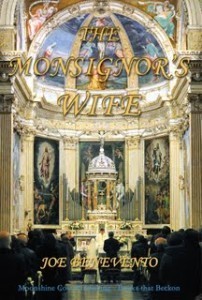
Joe Benevento’s first mystery novel, and ninth book of poetry and fiction over all, The Monsignor’s Wife, came out in September of 2013 with Moonshine Cove Publishing. For more information go to:www.AuthorJoeBenevento.com
The post Mystery Writers–Who (or What) is Your “Femme Fatale”? appeared first on Elizabeth Spann Craig.

